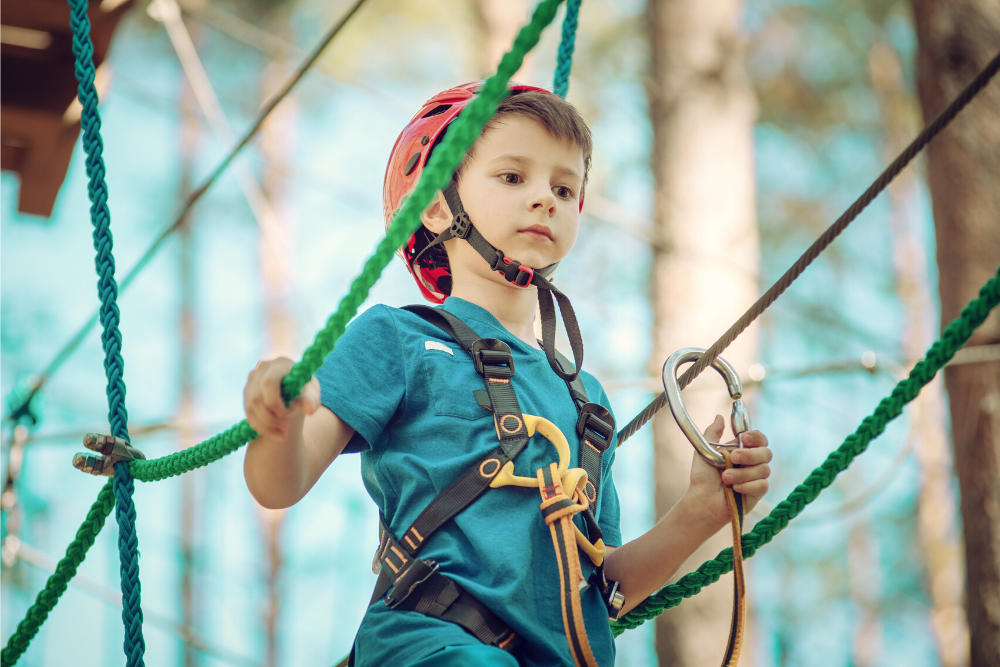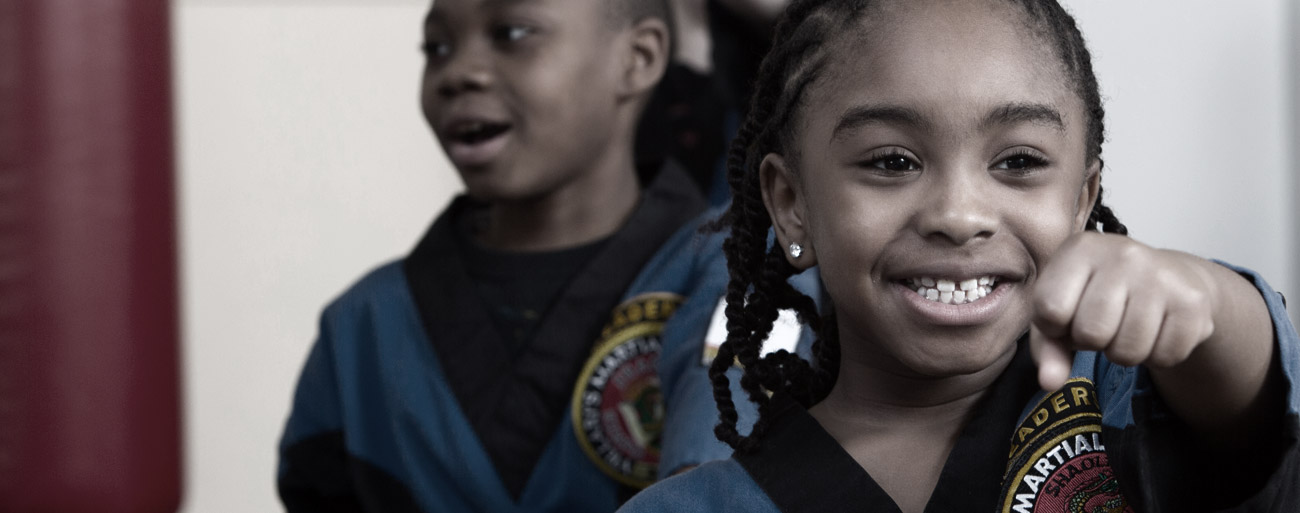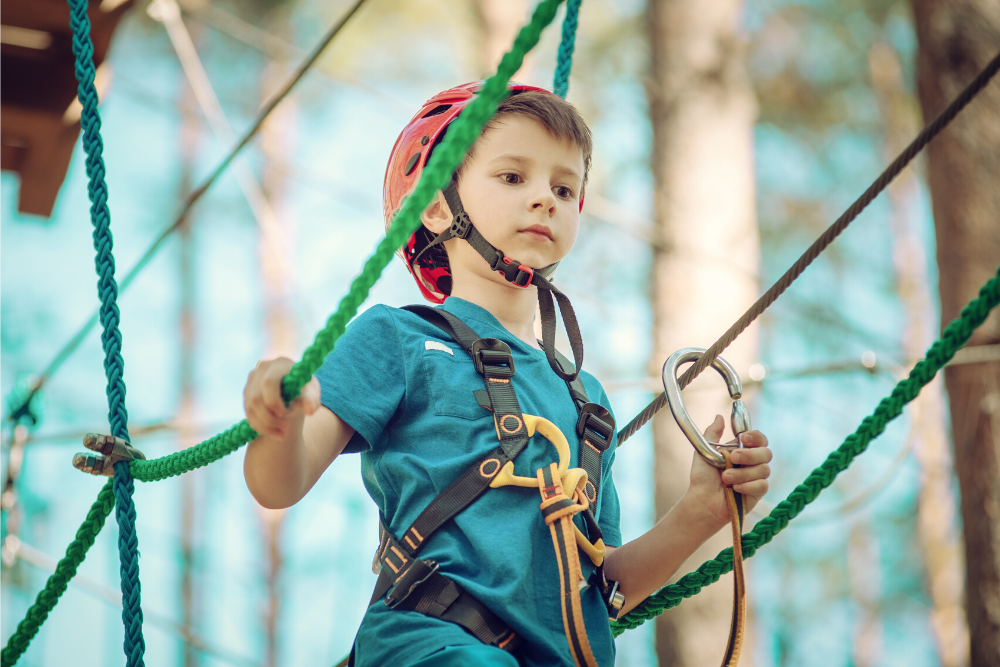9 Ways to Cultivate Courage in Kids
March 25th, 2021
Here’s how you can instill moral toughness in your kids to help them find their hero within.

My favorite movie about courage is “We Bought a Zoo.”
The family comedy-drama features a father (played by Matt Damon) who, struggling with the loss of his wife and seeking to start his life over, buys a large house – with a zoo. In one scene, the teen son (played by Colin Ford) admits to his dad that he’s crazy about a girl, but unless he musters the courage to tell her that their relationship is over. His dad’s advice is priceless: “You know, sometimes all you need is 20 seconds of insane courage – just literally 20 seconds of just embarrassing bravery – and I promise you that something great will come of it.”
The truth is that sometimes kids need gentle nudges to step out of their comfort zone and discover their inner strength. Our job is to help our children find their 20 seconds of safe courage, so they can do the right thing when their conscience or heart urges them to step in and help.
Why is it important for kids to be courageous? A bold child is more likely to withstand negative peer pressure, say no to temptations that run counter to your family’s values, and fight the good fight. Courage also has surprise benefits: It boosts kids’ resilience, confidence, and willpower as well as their learning, performance, and school engagement.
The good news is that courage can be taught. Here are nine ways to stretch kids’ risk-taking muscles in our bubble-wrapped world, so they can face adversity and do the right thing:
Model courage. Kids who watch their parents stick their necks out to do the right thing are more likely to do the same. Let your child see you step out of your comfort zone, whether it’s tackling your fear of heights or speaking up to your boss. Then express how good it feels when you conquer your fear instead of taking a shortcut. Your kids will learn how to take on the tough challenges they face by witnessing how you tackle your fears.
Talk about values and courage. Research finds that kids are more likely to be courageous if they believe that their parents expect them to support those in need. Discuss bravery with your kids: Tell them, “Courage is making the choice to do what you know is right even if you are afraid.” Some parents develop a family courage mantra such as, “We find the courage to do what’s right, even if it’s hard” or “Our family speaks up and helps others.”
Stop bubble-wrapping and rescuing your kids. Always “fixing” children’s problems only makes them more dependent and reduces their ability to bravely seek their own solutions. It also sends a disturbing message: “I’ll help because you can’t do it alone.” If you’re “over-helping,” start building your child’s courage muscles by putting him in the driver’s seat. Have him tell his coach he can’t make practice, instead of doing that for him. Or have your child apologize to her pal without your assistance.
Ask your kids to share their acts of bravery. Learning to be brave takes practice, so encourage your children to do something courageous every day, such as introducing themselves to someone new, inviting a new classmate to play, or standing up for a peer. Then take time to focus on their courageous breakthroughs. One dad, I spoke with had his kids list their “brave successes” on paper strips, then stapled the strips together to make “courage chains.” A mom I talked to had her kids share their brave deeds at dinner time.
Dispel the “Superman myth.” Many kids assume they need to look like a superhero to be courageous. Share stories of those who changed the world with their quiet, nonphysical brave acts. Jackie Robinson, the first African-American to play Major League Baseball, was heckled because of his skin color, and along with excelling on the field, he showed great bravery by conducting himself in a professional manner on and off the playing surface. Mahatma Gandhi – who would go on to be the leader of nonviolent civil disobedience – ran home after school every day, as a child, because he was too shy to talk to anyone. Rosa Parks, the African-American civil rights activist who refused to give up her seat to white passengers, was described as “soft-spoken … timid and shy.”
Read about courageous kids. Share inspiring news and stories about children who stick their necks out for others. A couple of my favorite books for younger kids are “Courage” by Bernard Waber and “Brave Irene” by William Steig. Check out these titles for older kids: “Wringer,” by Jerry Spinelli, and “Stand Up for Yourself and Your Friends” by Patti Kelley Criswell and Angela Martini.
Encourage young kids to take brave baby steps. Instead of picking her daughter up, a friend of mine helped her 3-year old find the courage to cross a small bridge by empowering her. “Be brave, Clara,” she told her daughter. “You can do it.” Clara continued, repeating to herself, “Be brave, Clara!” And she learned something when she crossed the bridge: “I’m brave, Mommy! I’m brave!”
Teach kids to prioritize safety. Even as we teach our children to be brave, it’s still important to temper risk-taking. Certainly, we want our children to be safe. So tell your child that safety is always the first priority. If someone could get hurt and the risk is too great, teach your kids to always get adult help or call 911 if needed. Encourage children to trust their instincts when they have concerns that something is unsafe.
Teach your kids how to reduce their fears. If not kept in check, fear can be overwhelming. Teach your child simple strategies to be brave. You might encourage positive self-talk, such as saying, “I can handle this” or “I have the courage to do this.” Or teach your child to take slow, deep breaths to find courage. Research finds younger children are more likely to share their fears with another child. Though you want them to be open with you, let them know it’s also OK to share their worries with a friend. Choose a fear reducer that works best for your child and then help her practice that until it becomes a habit.
For kids to thrive in today’s uncertain world, they will need courage and confidence. Let’s help them find their hero within and learn to be brave!





